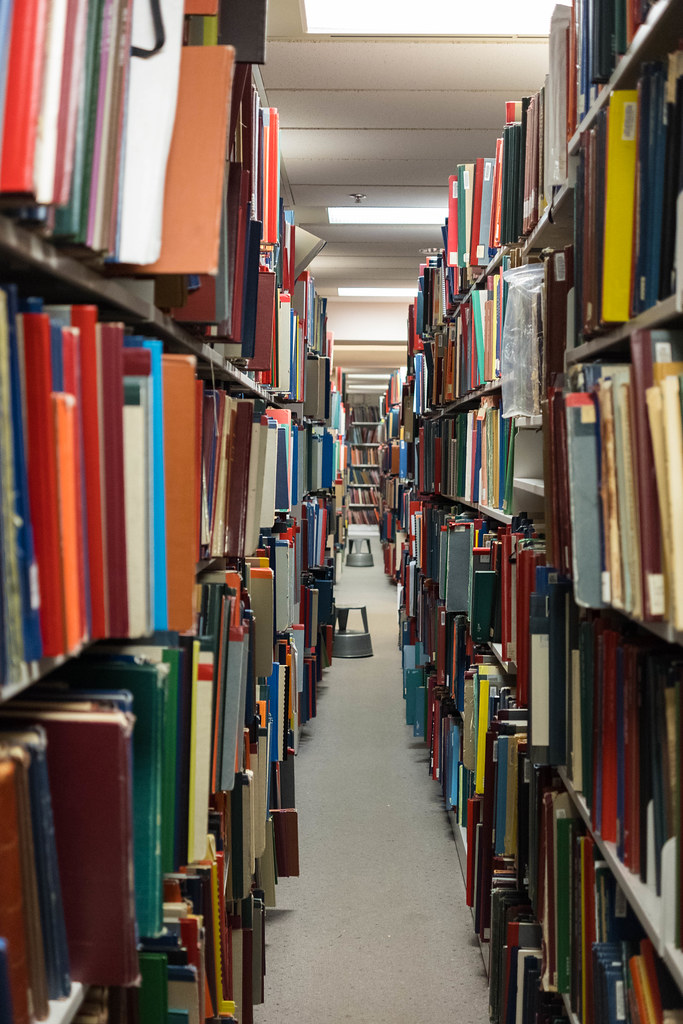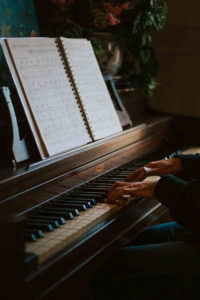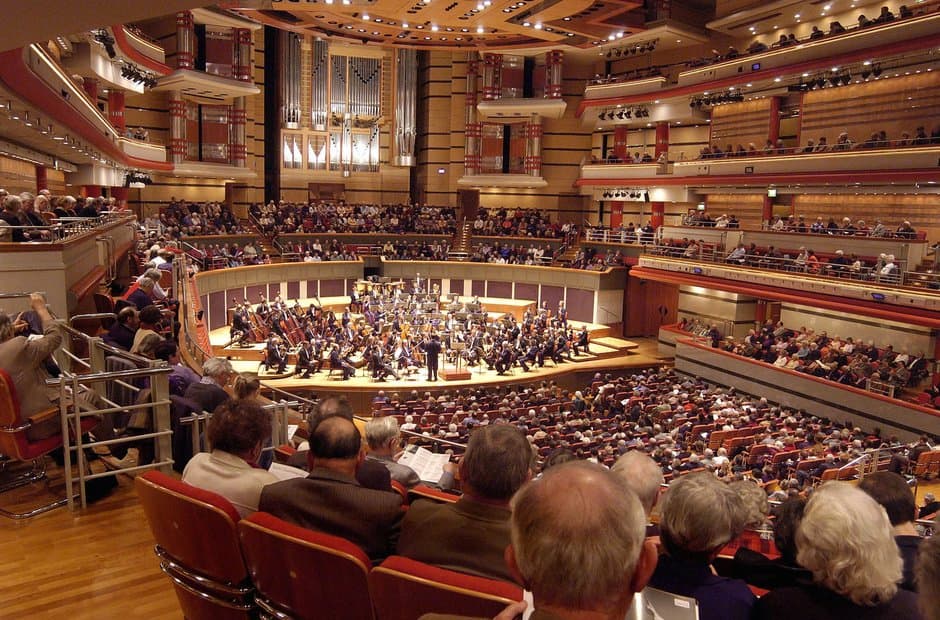
Music scores on the shelves of the Music Faculty Library, University of Toronto.
The author Umberto Eco has a library of an astonishing 30,000+ books, most of which he has not, and probably never will read. Nassim Nicholas Talib (author of The Black Swan) calls this an “anti-library” and believes it represents an ongoing intellectual curiosity and thirst for knowledge, for all those unread books contain what one does not know yet. The more one reads, the more one’s knowledge increases; the books one hasn’t read are a research tool, a means to extend one’s knowledge further.
The same can perhaps be said for musical scores. On the bookcase in my piano room are many scores of music which I may never play, but I have acquired those scores out of curiosity, and many of them represent, for me at least, an acknowledgement that my musical knowledge continues to grow. Some scores are also research tools, purchased for their detailed notes and annotations rather than the music itself; others I bought because I simply wanted to possess them. Some I have been sent by composers, hopeful that I may play their music. All of them are the music I haven’t played yet.
Feuchtwanger: Tariqa No. 2 (Helge Antoni, piano)
 Years ago, long before I started writing this blog and interviewing musicians on a regular basis, I went to interview a concert pianist at his home in the leafy suburbs. One wall of his piano room/office was filled with scores, floor to ceiling – dusky blue Henle, brick-red Weiner Urtext and pale green Edition Peters editions. This collection, including some very well-thumbed, much-used editions, represented a lifetime’s work in the profession, but I suspect there were more than a few scores that may never be opened, yet they had their place in this library as the music he hadn’t played yet.
Years ago, long before I started writing this blog and interviewing musicians on a regular basis, I went to interview a concert pianist at his home in the leafy suburbs. One wall of his piano room/office was filled with scores, floor to ceiling – dusky blue Henle, brick-red Weiner Urtext and pale green Edition Peters editions. This collection, including some very well-thumbed, much-used editions, represented a lifetime’s work in the profession, but I suspect there were more than a few scores that may never be opened, yet they had their place in this library as the music he hadn’t played yet.
In the world today, knowledge can be accrued incredibly easily and quickly via the internet, and this accrual of knowledge becomes a compulsive need to enable us to rise in the hierarchy of perceived “intelligence” or “knowledgeability”. I am always rather suspicious of people who tell me they have played all of Beethoven’s piano sonatas, this completist approach suggesting a certain lack of humility, as if to say “that’s it, I have mastered the instrument and its literature!” I subscribe to a more humble approach, based on the knowledge that a piece of music is never truly “finished”. People who lack this humility may enjoy a sense of pride at having ‘conquered’ Beethoven, without acknowledging that learning is an ongoing process.
The music we haven’t played yet may well be the most interesting in our repertoire, for it offers new possibilities in broadening our musical knowledge, extending our technical and artistic facilities, and widening our cultural horizons. It is a sign of an ever-expanding understanding of our competence and a necessary spur to mastery.
In fact, all the music we haven’t played yet represents a wondrous opportunity – it is just waiting to be explored!
Bryars: Ramble on Cortona (Ralph van Raat, piano)





Umberto Eco died like in 2016, certainly, most likely, he will never read his entire book collection.
“The author Umberto Eco has a library of an astonishing 30,000+ books, most of which he has not, and probably never will read…”
The article is dated March 15th, 2020